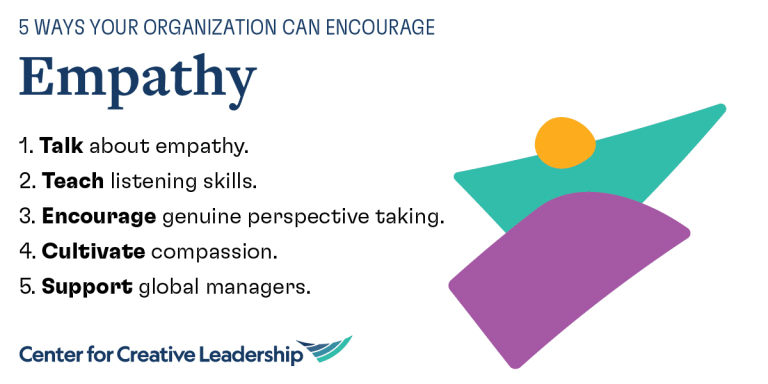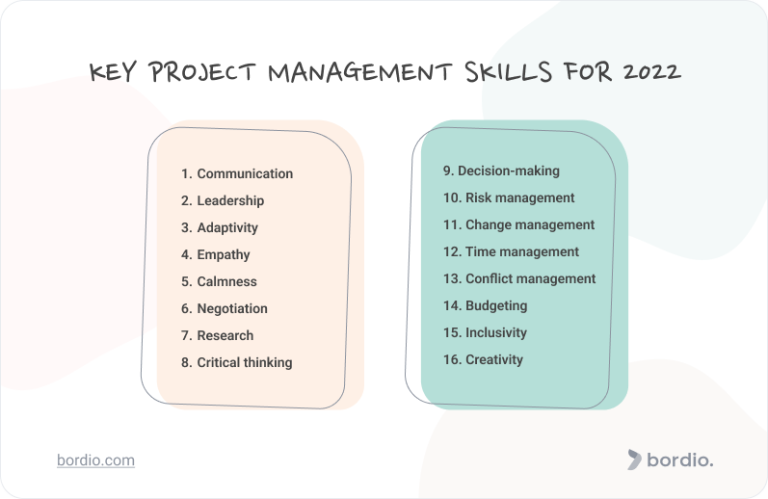How Do You Teach Leadership Skills to Teenagers?
To teach leadership skills to teenagers, engage them in practical exercises that involve decision-making, teamwork, and problem-solving, fostering their confidence and communication abilities. Leadership skills are crucial for teenagers to develop as they transition into adulthood.
By cultivating leadership qualities at a young age, teenagers can become empowered, adaptable, and resilient individuals. Through practical exercises and hands-on experiences, educators can guide teenagers towards becoming effective leaders. These exercises may include group projects, discussions, role-playing activities, and community service projects that encourage teenagers to make decisions, collaborate with others, and solve problems.
By providing opportunities for growth and learning, teenagers can develop confidence, communication skills, and a sense of responsibility, all of which are essential for effective leadership. Teaching leadership skills to teenagers not only prepares them for future leadership roles but also equips them with valuable life skills.

Credit: www.fanning.uga.edu
1. Importance Of Teaching Leadership Skills To Teenagers
Teaching leadership skills to teenagers is essential for their personal growth and future success. By providing them with the necessary tools and guidance, they can develop confidence, decision-making abilities, and effective communication skills, empowering them to become impactful leaders in their communities.
Teaching leadership skills to teenagers is crucial for their overall development and future success. During their formative years, teenagers undergo significant changes both mentally and physically. By equipping them with leadership skills, we empower them to navigate challenges, make responsible decisions, and thrive in various aspects of their lives.
1.1 Building Self-confidence
One essential aspect of teaching leadership skills to teenagers is building their self-confidence. When teenagers have belief in their abilities, they are more likely to take risks, overcome obstacles, and pursue their goals relentlessly. By providing them with opportunities to lead and supporting their growth, we help them develop a positive self-image and become confident individuals.
1.2 Fostering Teamwork
Another vital component of teaching leadership skills to teenagers is fostering teamwork. When teenagers learn to work collaboratively, they develop essential skills like communication, empathy, and cooperation. These skills enable them to contribute effectively to group projects, understand different perspectives, and appreciate the importance of collective achievement.

Credit: goldarrowcamp.com
2. Strategies For Teaching Leadership Skills
When it comes to teaching leadership skills to teenagers, it’s crucial to have effective strategies in place. These strategies focus on encouraging active participation, providing mentorship, and promoting decision-making. Let’s explore each of these strategies in detail.
2.1 Encouraging Active Participation
Encouraging active participation is a key aspect of teaching leadership skills to teenagers. By involving them in hands-on activities and group projects, we can provide them with opportunities to learn and practice leadership skills in real-life situations. Here’s how:
- Assign group projects that require collaboration and decision-making.
- Encourage students to take on leadership roles within these projects.
- Provide platforms for teenagers to express their ideas and opinions.
- Offer opportunities for public speaking and presentations.
- Organize leadership workshops and seminars where teenagers can learn from experts.
2.2 Providing Mentorship
Providing mentorship plays a vital role in developing leadership skills among teenagers. Having a mentor who can guide and support them throughout their leadership journey can make a significant impact. Here’s how you can provide effective mentorship:
- Assign each teenager a mentor who has experience in leadership.
- Ensure regular one-on-one meetings between the mentor and teenager.
- Encourage open communication and provide a safe space for discussions.
- Set goals and monitor progress together.
- Offer constructive feedback and guidance.
2.3 Promoting Decision-making
Promoting decision-making is essential for teenagers to develop their leadership skills. By allowing them to make decisions and take ownership of their choices, we can empower them to become confident and effective leaders. Here are some ways to promote decision-making:
- Assign tasks that require making choices and taking responsibility.
- Encourage teenagers to analyze situations and consider different perspectives.
- Allow them to experience both success and failure, and guide them in learning from both.
- Teach problem-solving techniques and critical thinking skills.
- Provide guidance in weighing the pros and cons before making decisions.
By implementing these strategies, we can effectively teach leadership skills to teenagers, empowering them to become future leaders who can make a positive impact on their communities and beyond.
3. Incorporating Real-world Experiences
Teaching leadership skills to teenagers involves incorporating real-world experiences to enhance their learning and practical application. By providing opportunities for hands-on experiences and exposure to real-life scenarios, teenagers can develop their leadership skills in a more effective and meaningful way.
Teaching leadership skills to teenagers is an essential part of their personal and academic development. While theoretical knowledge has its place, incorporating real-world experiences can provide valuable lessons and solidify leadership qualities. By organizing community service projects and arranging leadership workshops, teenagers can learn to apply their skills in practical situations.3.1 Organizing Community Service Projects
Organizing community service projects is an effective way to instill leadership skills in teenagers. These projects allow them to connect with their local community and make a positive impact. Whether it’s cleaning up a local park, organizing a food drive, or volunteering at a shelter, community service projects give teenagers the opportunity to take on responsibilities and lead a team. Through this experience, they learn to communicate effectively, delegate tasks, and motivate others.3.2 Arranging Leadership Workshops
Arranging leadership workshops further enhances the development of leadership skills in teenagers. These workshops are designed to provide interactive learning experiences focused on leadership principles and practices in the real world. Participants engage in activities, role plays, and discussions that simulate real-world leadership scenarios. These workshops also offer teenagers the chance to network with other aspiring leaders and learn from experienced mentors. As a result, teenagers gain valuable insights, confidence, and interpersonal skills that are essential for effective leadership. In conclusion, incorporating real-world experiences is crucial when teaching leadership skills to teenagers. By organizing community service projects and arranging leadership workshops, teenagers can develop practical skills, gain confidence, and make a positive impact in their communities. These experiences provide a solid foundation for their future endeavors and equip them with the necessary tools to become effective leaders.4. Role Of Communication In Leadership Development
When it comes to developing leadership skills among teenagers, communication plays a crucial role. As an essential component of effective leadership, communication empowers teenagers to articulate their thoughts, share ideas, and inspire others. In this section, we will explore the role of communication in leadership development and discuss two key aspects: teaching effective verbal communication and developing active listening skills.
4.1 Teaching Effective Verbal Communication
Effective verbal communication is the cornerstone of leadership. By teaching teenagers how to express themselves clearly and persuasively, you can help them become more influential leaders. Here are some strategies to foster effective verbal communication:
- Encourage teenagers to use simple and concise language to convey their message.
- Teach them the importance of maintaining eye contact, using appropriate body language, and speaking confidently.
- Practice public speaking by organizing mock presentations or debate sessions.
By guiding teenagers through these activities, you can help them become comfortable and poised communicators, capable of motivating and inspiring those around them.
4.2 Developing Active Listening Skills
Active listening is a vital skill for any leader. It enables teenagers to understand the perspectives of others, build strong relationships, and make informed decisions. To develop active listening skills, you can employ the following techniques:
- Teach teenagers to maintain eye contact and pay full attention when someone is speaking.
- Show them how to paraphrase and ask clarifying questions to ensure their understanding of the speaker’s message.
- Encourage teenagers to practice empathy and put themselves in the speaker’s shoes, fostering a deeper connection and mutual respect.
By cultivating active listening habits, teenagers can become more empathetic and inclusive leaders, capable of building strong teams and fostering positive collaborations.
5. Evaluating And Recognizing Leadership Growth
Evaluating and recognizing leadership growth in teenagers is crucial to their development and provides them with the necessary encouragement and motivation to continue their leadership journey. By implementing effective assessment criteria and celebrating their achievements, we can instill a sense of accomplishment and drive in teenagers, empowering them to reach their full potential.
5.1 Creating Assessment Criteria
Creating assessment criteria allows us to objectively evaluate and measure the progress of teenagers in acquiring leadership skills. By establishing clear guidelines, we can effectively assess their growth and identify areas for improvement. Consider incorporating the following assessment criteria:
- Demonstration of effective communication skills
- Ability to work well in a team
- Initiative and problem-solving capabilities
- Decision-making skills
- Responsibility and accountability
- Adaptability and flexibility
These criteria provide a structured framework to evaluate leadership growth and serve as benchmarks for teenagers to strive towards. Regularly reviewing and updating the assessment criteria ensures they remain relevant and aligned with the evolving needs of the teenagers.
5.2 Celebrating Achievements
Celebrating achievements creates a positive environment that encourages teenagers to continue developing their leadership skills. Recognizing their accomplishments not only boosts their self-esteem but also reinforces the value of leadership. Here are some effective ways to celebrate their achievements:
- Award ceremonies: Organize award ceremonies to acknowledge outstanding leadership qualities. Present certificates or trophies as tangible tokens of recognition.
- Public recognition: Share their accomplishments through newsletters, social media, or school announcements, shining a spotlight on their leadership growth.
- Peer appreciation: Encourage peer feedback and appreciation. Provide opportunities for teenagers to recognize and commend each other’s leadership efforts.
- Leadership showcase: Arrange events where teenagers can showcase their leadership projects or initiatives to the broader community, promoting their achievements.
By celebrating their achievements, we foster a positive mindset and inspire teenagers to continue developing their leadership skills. These recognition efforts contribute to building their confidence and resilience, enabling them to excel in future leadership roles.

Credit: allevents.in
Frequently Asked Questions On How Do You Teach Leadership Skills To Teenagers?
How Can Leadership Skills Be Taught To Teenagers?
Leadership skills can be taught to teenagers through interactive activities, role-playing exercises, and mentorship programs.
What Are The Benefits Of Teaching Teenagers Leadership Skills?
Teaching teenagers leadership skills can help them develop self-confidence, communication abilities, and problem-solving aptitude, crucial for their personal and professional growth.
What Strategies Can Be Used To Engage Teenagers In Leadership Training?
To engage teenagers in leadership training, using real-life examples, incorporating technology, and encouraging teamwork can significantly enhance their learning experience.
Conclusion
Developing leadership skills in teenagers is crucial for their personal and professional growth. By fostering a positive environment and engaging them in various activities like team-building exercises, problem-solving tasks, and community service projects, we can empower them to be confident and effective leaders.
Encouraging open communication and providing mentorship opportunities also play a significant role in shaping their leadership abilities. With the right guidance and support, teens can develop the necessary skills to become strong and influential leaders in their future endeavors.




